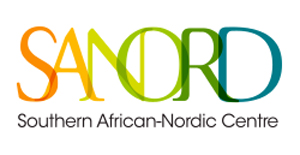Key Concepts & Values
Four concepts enable us to understand the vision of SANORD:
MUTUALITY
Relationships between Nordic and Southern universities have been characterised by a great deal of mutual respect. However, new dimensions have to be considered:
Global challenges of innovation require new respect for the global intellectual “gene pool” and so for local knowledge and perspectives. One of the challenges for the south is the brain drain. The experience of the International Foundation for Science (based in Stockholm) suggests that multilateral cooperation (N-S, S-S, and N-N-S-S) is highly effective in such circumstances.
STRATEGIC DEVELOPMENT
Much cooperation at present is valuable in its own terms but does relatively little for achieving any strategic vision. The involvement of leadership immediately places the strategic issues on the agenda and increases the scale of the operation. Naturally, alignment with strategic focus can lead to the best possible use of available resources.
SUSTAINED ENGAGEMENT
SANORD will have the capacity to further sustained engagement of the kind that helps individuals and institutions to keep in touch and develop new initiatives. Initially, it is envisaged that this will be through the SANORD database and website, seminars, workshops, meetings and an annual conference.
LEADERSHIP
- A feature of most projects in inter-institutional relations is the low profile of institutional leadership. It is a weakness in several respects.
- SANORD envisages a major engagement of leadership, with the opportunities for meeting regularly on projects of sufficient scale. Rapidly emerging features of development thinking make this vital. The New Partnership for African Development (NEPAD) envisages substantial multilateral N-N-S-S interventions to achieve real and sustainable capacity development in Africa. It also opens up new possibilities of innovative thinking on a variety of issues within a global context. Without the direct involvement of university leadership, very little of this is likely to be achieved.
- While academic independence is rightly prized, without a clear engagement of each project in a larger strategic vision, and without committed institutional support, the impact and sustainability of work are reduced.
- Larger-scale projects are seldom tackled, as they would require commitments beyond the individual funding cycle or the departmental level.
- The leadership of institutions seldom meet or have a joint role to play in this context. They are prevented from developing and supporting larger strategic interventions and from seeking the best for their own institutions from cooperative activities. Many opportunities are missed.
- Issues of governance are not often on the cooperation agenda.
